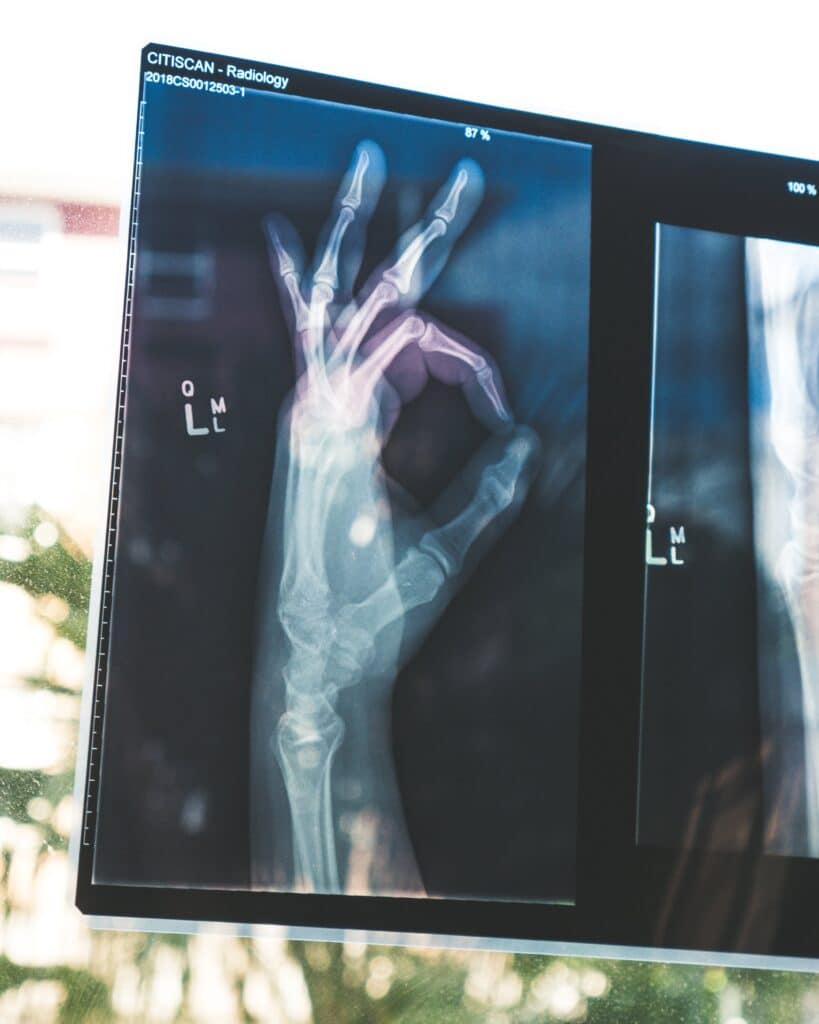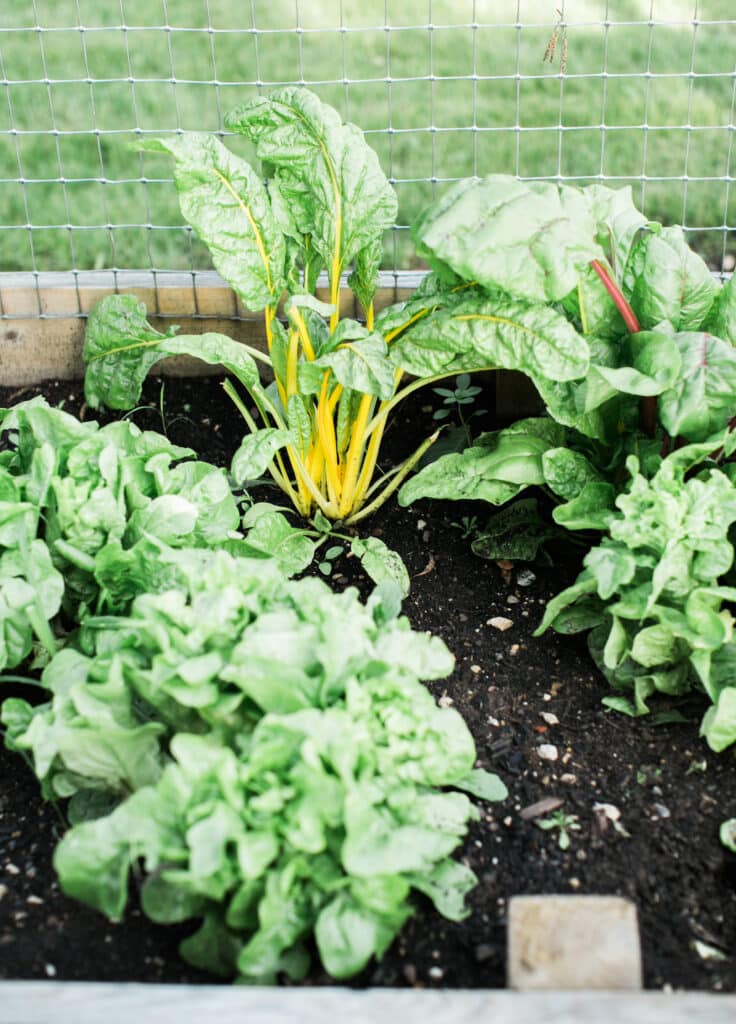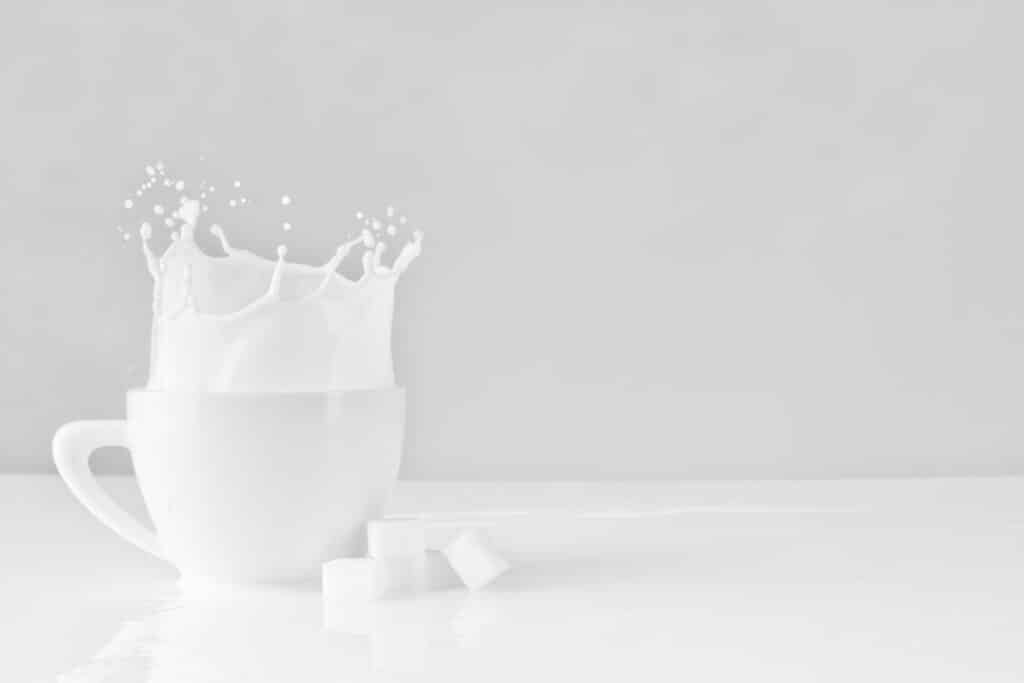The Wholesome Journey - Group Nutrition Coaching Program
Mentorship Program, 1:1 Nutrition Coaching with Alison
What do you want to learn more about?
Program Login
Podcast Features
January 25, 2019
Alison Tierney, MS, RD, CD, CSO
Alison is a registered dietitian, board-certified in oncology nutrition, and a cancer thriver. Her expertise in oncology nutrition and personal experience with her own cancer diagnosis and its treatment provide her with the unique perspective of being able to relate to her clients on an entirely different level. Her content is consistently focused on evidence-based guidelines and seeks to increase the awareness of the power of nutrition to complement traditional cancer therapies.
- Alison Tierney, MS, RD, CD, CSO
- Alison Tierney, MS, RD, CD, CSO
- Alison Tierney, MS, RD, CD, CSO
- Alison Tierney, MS, RD, CD, CSO
- Alison Tierney, MS, RD, CD, CSO
- Alison Tierney, MS, RD, CD, CSO
- Alison Tierney, MS, RD, CD, CSO
- Alison Tierney, MS, RD, CD, CSO
- Alison Tierney, MS, RD, CD, CSO
- Alison Tierney, MS, RD, CD, CSO
- Alison Tierney, MS, RD, CD, CSO
- Alison Tierney, MS, RD, CD, CSO
- Alison Tierney, MS, RD, CD, CSO
- Alison Tierney, MS, RD, CD, CSO
- Alison Tierney, MS, RD, CD, CSO
- Alison Tierney, MS, RD, CD, CSO
- Alison Tierney, MS, RD, CD, CSO
- Alison Tierney, MS, RD, CD, CSO
- Alison Tierney, MS, RD, CD, CSO
- Alison Tierney, MS, RD, CD, CSO
- Alison Tierney, MS, RD, CD, CSO
- Alison Tierney, MS, RD, CD, CSO
- Alison Tierney, MS, RD, CD, CSO
- Alison Tierney, MS, RD, CD, CSO
- Alison Tierney, MS, RD, CD, CSO
- Alison Tierney, MS, RD, CD, CSO
- Alison Tierney, MS, RD, CD, CSO
- Alison Tierney, MS, RD, CD, CSO
- Alison Tierney, MS, RD, CD, CSO
- Alison Tierney, MS, RD, CD, CSO
- Alison Tierney, MS, RD, CD, CSO
- Alison Tierney, MS, RD, CD, CSO
- Alison Tierney, MS, RD, CD, CSO
- Alison Tierney, MS, RD, CD, CSO
- Alison Tierney, MS, RD, CD, CSO
- Alison Tierney, MS, RD, CD, CSO
- Alison Tierney, MS, RD, CD, CSO
- Alison Tierney, MS, RD, CD, CSO
- Alison Tierney, MS, RD, CD, CSO
- Alison Tierney, MS, RD, CD, CSO
- Alison Tierney, MS, RD, CD, CSO
- Alison Tierney, MS, RD, CD, CSO
- Alison Tierney, MS, RD, CD, CSO
- Alison Tierney, MS, RD, CD, CSO
- Alison Tierney, MS, RD, CD, CSO
- Alison Tierney, MS, RD, CD, CSO
- Alison Tierney, MS, RD, CD, CSO
- Alison Tierney, MS, RD, CD, CSO
- Alison Tierney, MS, RD, CD, CSO
- Alison Tierney, MS, RD, CD, CSO
- Alison Tierney, MS, RD, CD, CSO
- Alison Tierney, MS, RD, CD, CSO
- Alison Tierney, MS, RD, CD, CSO
- Alison Tierney, MS, RD, CD, CSO
- Alison Tierney, MS, RD, CD, CSO
- Alison Tierney, MS, RD, CD, CSO
- Alison Tierney, MS, RD, CD, CSO
- Alison Tierney, MS, RD, CD, CSO
- Alison Tierney, MS, RD, CD, CSO
- Alison Tierney, MS, RD, CD, CSO
- Alison Tierney, MS, RD, CD, CSO
- Alison Tierney, MS, RD, CD, CSO
- Alison Tierney, MS, RD, CD, CSO
- Alison Tierney, MS, RD, CD, CSO
- Alison Tierney, MS, RD, CD, CSO
- Alison Tierney, MS, RD, CD, CSO
- Alison Tierney, MS, RD, CD, CSO
- Alison Tierney, MS, RD, CD, CSO
- Alison Tierney, MS, RD, CD, CSO
- Alison Tierney, MS, RD, CD, CSO
- Alison Tierney, MS, RD, CD, CSO
- Alison Tierney, MS, RD, CD, CSO
- Alison Tierney, MS, RD, CD, CSO
- Alison Tierney, MS, RD, CD, CSO
- Alison Tierney, MS, RD, CD, CSO
- Alison Tierney, MS, RD, CD, CSO
- Alison Tierney, MS, RD, CD, CSO
- Alison Tierney, MS, RD, CD, CSO
- Alison Tierney, MS, RD, CD, CSO
- Alison Tierney, MS, RD, CD, CSO
- Alison Tierney, MS, RD, CD, CSO
- Alison Tierney, MS, RD, CD, CSO
- Alison Tierney, MS, RD, CD, CSO
- Alison Tierney, MS, RD, CD, CSO
- Alison Tierney, MS, RD, CD, CSO
- Alison Tierney, MS, RD, CD, CSO
- Alison Tierney, MS, RD, CD, CSO
- Alison Tierney, MS, RD, CD, CSO
- Alison Tierney, MS, RD, CD, CSO
- Alison Tierney, MS, RD, CD, CSO
- Alison Tierney, MS, RD, CD, CSO
- Alison Tierney, MS, RD, CD, CSO
- Alison Tierney, MS, RD, CD, CSO
- Alison Tierney, MS, RD, CD, CSO
- Alison Tierney, MS, RD, CD, CSO
- Alison Tierney, MS, RD, CD, CSO
- Alison Tierney, MS, RD, CD, CSO
- Alison Tierney, MS, RD, CD, CSO
- Alison Tierney, MS, RD, CD, CSO
- Alison Tierney, MS, RD, CD, CSO
- Alison Tierney, MS, RD, CD, CSO
- Alison Tierney, MS, RD, CD, CSO
- Alison Tierney, MS, RD, CD, CSO
- Alison Tierney, MS, RD, CD, CSO
- Alison Tierney, MS, RD, CD, CSO
- Alison Tierney, MS, RD, CD, CSO
- Alison Tierney, MS, RD, CD, CSO
- Alison Tierney, MS, RD, CD, CSO
- Alison Tierney, MS, RD, CD, CSO
- Alison Tierney, MS, RD, CD, CSO
- Alison Tierney, MS, RD, CD, CSO
- Alison Tierney, MS, RD, CD, CSO
- Alison Tierney, MS, RD, CD, CSO
- Alison Tierney, MS, RD, CD, CSO
- Alison Tierney, MS, RD, CD, CSO
- Alison Tierney, MS, RD, CD, CSO
- Alison Tierney, MS, RD, CD, CSO
- Alison Tierney, MS, RD, CD, CSO
- Alison Tierney, MS, RD, CD, CSO
- Alison Tierney, MS, RD, CD, CSO
- Alison Tierney, MS, RD, CD, CSO
- Alison Tierney, MS, RD, CD, CSO
- Alison Tierney, MS, RD, CD, CSO
“If I don’t eat dairy, where would I get my calcium?”
This is likely on your list of questions regarding the plant-based diet. Even as a dietitian, I once asked a similar question myself.
Growing up, and even into early adulthood, there was always a glass of skim cow’s milk next to my dinner plate. But as I learned the research, that glass of cow’s milk was quickly removed from meal time, cold turkey.
Cheese was a different story. It was the last to go because, well, I love cheese — likely as much as any Wisconsinite.

Dairy is the number one source of calcium in the United States. It is also the number one source of saturated fat. (1)
Although dairy is a great source of calcium, it brings a whole set of problems we want to steer clear of.
I know we hear it all the time — “Milk is good for our bones”.
The truth is, calcium is good for our bones — and several other important human processes.
But dairy is not good for our bones, like many of us thought (myself included).
Women who drank cow’s milk 3 times per day actually broke more bones than women who rarely drank cow’s milk — according to a 12-year Harvard study of 78,000 women (2).
When it comes to men, research has found higher dairy consumption is associated with increased overall bone fracture risk and 2x the hip fracture risk, compared to those with the lowest consumption (3).
“Okay, Alison, then how should I get my calcium and protect my bones?”
Don’t worry, I’ve got you covered.
5 Tips for Calcium Consumption & Optimizing Bone Health

1. Consume plant-based foods rich in calcium
Yes–there are plant-based foods with significant amounts of calcium! And not only are the sources of plant-based calcium healthy for our bones, they also contain phytochemicals for defense against cancer and numerous other healthy nutrients.
Our favorites include dark-leafy greens and legumes which contain highly absorbable calcium. In fact, the calcium in dark-leafy greens is absorbed roughly 2x better than calcium from cow’s milk. The exception to this is spinach, which does contain calcium, but isn’t as highly absorbable. (4)
Want to know the top sources plant-based calcium? Download our (FREE) list of calcium rich foods, along with recommended intake amounts. Plus, we provide a sample menu to show you how simple it can be to meet your needs!
2. Exercise
There is probably no surprise to see that exercise is on the list, but most most individuals aren’t aware exercise is important for bone health.
There is an accumulation of evidence which supports exercise can influence bone health by preserving bone mass and strength (5).
Consider exercise with resistance such as: weight training, walking, hiking, jogging, climbing stairs, tennis, and dancing.
3. Ensure adequate vitamin D levels
Vitamin D is important in regulating the absorption and use of calcium in our body, among other human processes. What’s even better than that? More and more research is finding its benefits in mental health, immunity, and chronic disease.
Before supplementing, I always recommend patients have their vitamin D levels checked. Ask your physician to add this to your next lab draw since it is not typically part of a routine lab draw. Depending on your result, your physician, pharmacist, or dietitian can recommended if and how much supplementation you may need.
Tip: Be sure to check with your insurance to see if it is covered.
4. Avoid excess sodium intake
Consuming a diet high in sodium (salt) can actually lead to increased losses of calcium through our kidneys and ultimately our urine (6).
Consuming a diet focused on whole, plant-based foods is naturally low in sodium and can result in reducing calcium losses.
5. Consume plant-based sources of protein, instead of animal-based sources

Did you know research widely recognizes that excess dietary protein can adversely affect bone health as an increase in dietary protein results in greater calcium excretion? Thankfully, plant-based protein (verses animal protein), doesn’t appear to have the same effect on calcium losses. (7,8)
Check out our infographic on plant-based protein and foods with top sources.
Not only does a whole-food, plant based diet reduce the risk of cancer, heart disease, diabetes, and more, it also provides us with all the calcium we need to protect our bone health at any age.
What questions do you still have about calcium and the plant-based diet?
References:
- Greger, M., MD, FACLM. (2015). How Not to Die: Discover the Foods Scientifically Proven to Prevent and Reverse Disease. New York, NY: Flatiron Books., p 260
- U.S. Department of Health and Human Services. Bone Health and Osteoporosis: A Report of the Surgeon General. Rockville, MD: U.S. Department of Health and Human Services, Office of the Surgeon General; 2004.
- Feskanich D, Willett WC, Colditz GA. Calcium, vitamin D, milk consumption, and hip fractures: a prospective study among postmenopausal women. Am J Clin Nutr. 2003;77:504-511.
- Greger, M., MD, FACLM. (2008, September 5). Retrieved from https://nutritionfacts.org/video/plant-vs-cow-calcium-2/
- Santos, L., Elliott-Sale, K. J., & Sale, C. (2017). Exercise and bone health across the lifespan. Biogerontology, 18(6), 931-946. doi:10.1007/s10522-017-9732-6.
- Committee to Review Dietary Reference Intakes for Vitamin D and Calcium, Food and Nutrition Board, Institute of Medicine. Dietary Reference Intakes for Calcium and Vitamin D. Washington, DC: National Academy Press, 2010.
- Holick MF, Garabedian M: Vitamin D: photobiology, metabolism, mechanism of action, and clinical applications. In Primer on the metabolic bone diseases and disorders of mineral metabolism. 6th edition. Edited by Favus MJ. Washington, DC: American Society for Bone and Mineral Research; 2006::129-137.
- A. L. Darling, D. J. Millward, D. J. Torgerson, C. E. Hewitt, S. A. Lanham-New. Dietary protein and bone health: A systematic review and meta-analysis. Am. J. Clin. Nutr. 2009 90(6):1674 – 1692.
5 Tips for Bone Health
Leave a Reply Cancel reply
Featured Articles
Wholesome LLC is not a medical practice, and its employees cannot offer medical advice. This website provides educational information but it is not a substitute for medical advice from a licensed medical professional who is familiar with your particular facts and circumstances. The information contained on this website is not intended to diagnose, treat, or cure any disease and shall not be construed as medical advice. The information and education on this website is provided for you to use at your own discretion.
You can further review our disclaimer here.
Wholesome
About Alison
Courses & Programs
The Wholesome Journey
Free Resources
FAQs
Press & Media
Recipes
Blog
Contact Us
Shop
© 2026 Wholesome, LLC All rights reserved.
Privacy Policy
Terms of Use
Disclaimer
Mobile Terms of Service



Be the first to comment